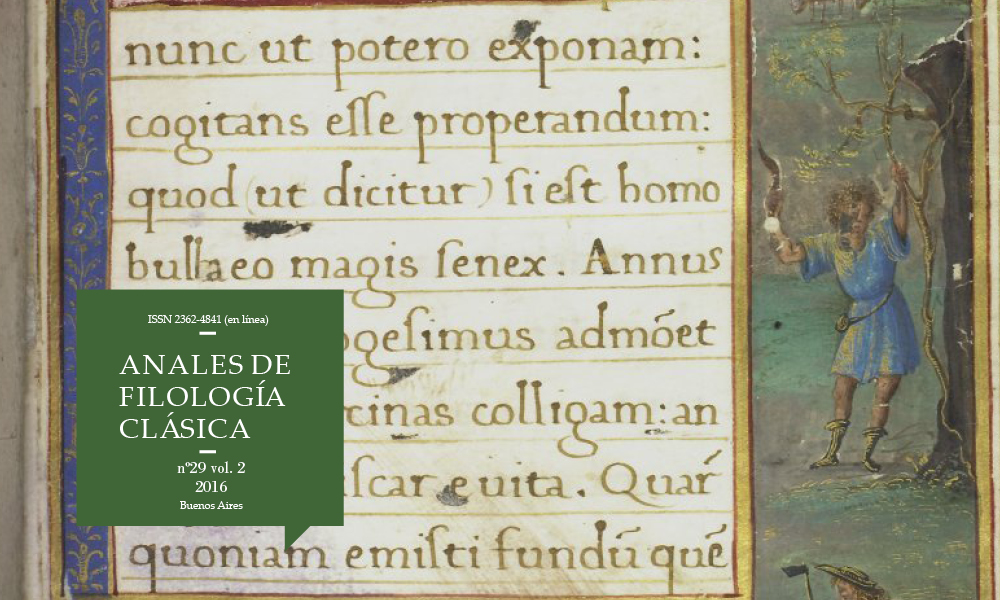Hierón y los hoplitas griegos: la función bélica como forma de inmortalidad en la <i>Elegía de Platea</i> de Simónides (fr.11 W=fr.5 A) y la Pítica primera de Píndaro
Resumo
Este trabajo efectúa un análisis comparativo entre los fragmentos de la Elegía de Platea y la Pítica 1, tomando como eje dos formas del fenómeno de la inmortalidad: la gloria otorgada por el canto y la instauración de cultos heroicos. Hierón y los hoplitas griegos resultan receptores de dicho fenómeno. Se prestará atención a la composición de ambos poemas en torno a los niveles de sentido que estos construyen y a su relación con la tradición homérica en la cual se insertan. Asimismo, las referencias al medio sociocultural de ambas producciones ofrecerán un contrapunto para el análisis del culto heroico.Downloads
Não há dados estatísticos.
Como Citar
Anush Stripeikis, C. (1). Hierón y los hoplitas griegos: la función bélica como forma de inmortalidad en la <i>Elegía de Platea</i> de Simónides (fr.11 W=fr.5 A) y la Pítica primera de Píndaro. Anales De Filología Clásica, 2(29), 141-153. https://doi.org/10.34096/afc.v2i29.5147
Edição
Seção
Artículos
Los autores/as que publiquen en esta revista aceptan las siguientes condiciones:
- Los autores/as conservan los derechos de autor y ceden a la revista el derecho de la primera publicación, con el trabajo registrado con la licencia de Atribución-CompartirIgual 4.0 Internacional (CC-BY-SA 4.0) de Creative Commons, que permite el uso comercial de la obra y de las posibles obras derivadas, la distribución de las cuales se debe hacer con una licencia igual a la que regula la obra original.
- Los autores/as pueden realizar otros acuerdos contractuales independientes y adicionales para la distribución no exclusiva de la versión del artículo publicado en esta revista (p. ej., incluirlo en un repositorio institucional o publicarlo en un libro) siempre que indiquen claramente que el trabajo se publicó por primera vez en esta revista.
- Se permite y recomienda a los autores/as a publicar su trabajo en Internet (por ejemplo en páginas institucionales o personales) antes y durante el proceso de revisión y publicación, ya que puede conducir a intercambios productivos y a una mayor y más rápida difusión del trabajo publicado (vea The Effect of Open Access).
En ningún momento se cobrará monto alguno al autor por la publicación en esta revista.







